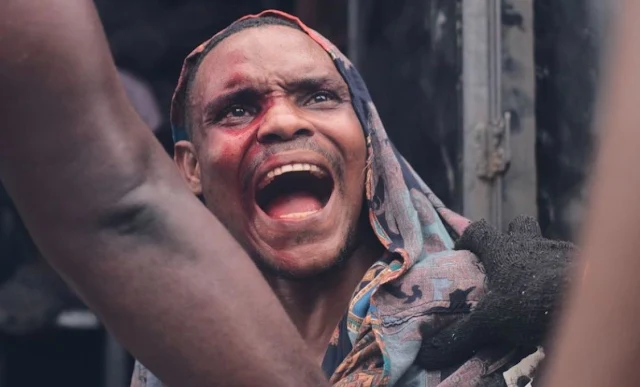In a suit filed against the Lagos State government over the unlawful attack of the driver, the presiding judge, A. L. Allagoa, ordered that five million naira be paid as damages for the violation of Mr Clement’s rights. The court condemned the torture of Mr Clement by officials of the Lagos State Neighborhood Safety Agency and the Nigeria Police Force.
Mr Clement's lawyer, Inibehe Effiong, expressed appreciation that the court upheld the rights of his client and that justice was served. In a series of tweets on Tuesday, Mr Effiong narrated how his client was assaulted by officials of the Lagos police command and Lagos State Neighborhood Safety Agency.
The lawyer explained that his client was carrying a passenger from the Island to the Mainland, when he encountered an ongoing protest on October 20, 2021, at the Lekki Toll Gate. Mr Clement abandoned his car on the roadside after police officers fired tear gas to disperse the protesters.
According to Mr Effiong, Mr Clement was accosted, dragged, tortured, and manhandled by officers who refused to heed his entreaties that he was an Uber driver and only wanted to retrieve his car. The assault was captured on video and reported by media houses.
The lawyer further explained that in their attempt to forcefully put him inside the vehicle of the Lagos State Taskforce, also known as Black Maria, the officials of the Lagos State Government in connivance with police officers used pepper spray on Mr Clement, who cried for help.
Following the ruling, Mr Effiong urged Governor Babajide Sanwo-Olu of Lagos to comply with the judgment and pay the compensation to reassure Lagosians that he believes in human rights.
The EndSARS protest, which began in October 2020, was a nationwide demonstration against police brutality in Nigeria. The protest was sparked by a video that went viral on social media, showing a man being beaten, apparently by police officers of the Special Anti-Robbery Squad (SARS).
The protest quickly spread across Nigeria, and demands for the disbandment of the SARS police unit grew louder. Despite the disbandment of the SARS police unit by the federal government, the protest continued, with protesters calling for comprehensive police reform.
The protest was peaceful at first, but it turned violent when some hoodlums hijacked the protest, leading to the destruction of property, looting, and loss of lives. The EndSARS protest is considered one of the biggest demonstrations in Nigeria's history, with millions of Nigerians taking to the streets to demand change.
In the aftermath of the protest, there were allegations of human rights violations by security agencies, including the police, army, and the Department of State Services (DSS). The Lagos State government set up a judicial panel of inquiry to investigate the allegations and compensate victims.
However, there have been concerns about the slow pace of the compensation process and the failure of the government to hold security agents accountable for the violations. The ruling by the Federal High Court in Lagos state to compensate Mr Clement is a step towards addressing the violations that occurred during the protest.
The ruling also sends a strong message to security agencies that they will be held accountable for any human rights violations they commit. It is hoped that this will deter security agencies from engaging in acts of brutality and violations of citizens' rights in the future.



